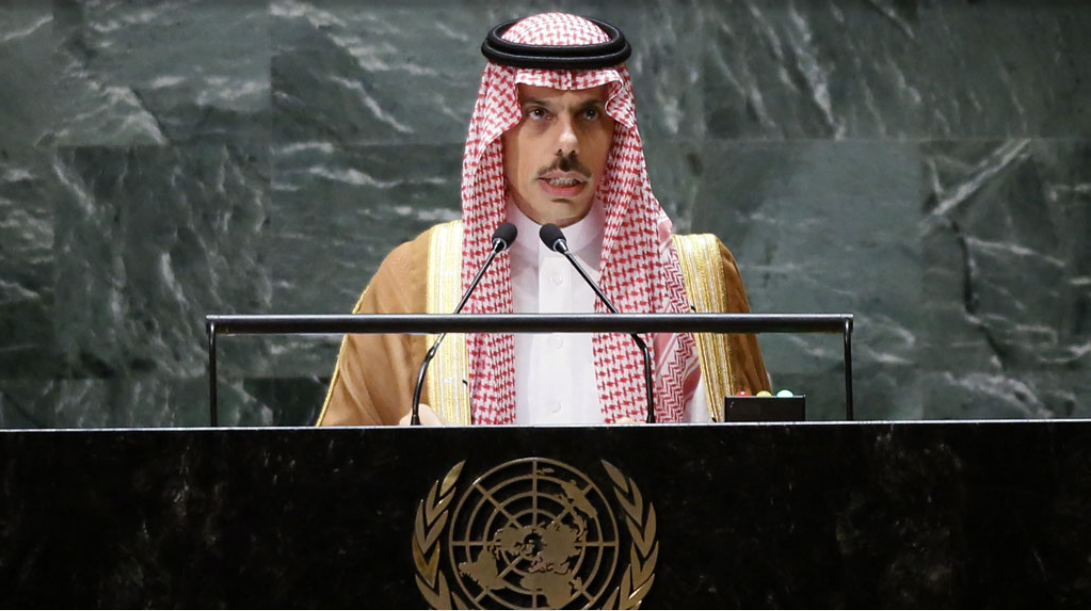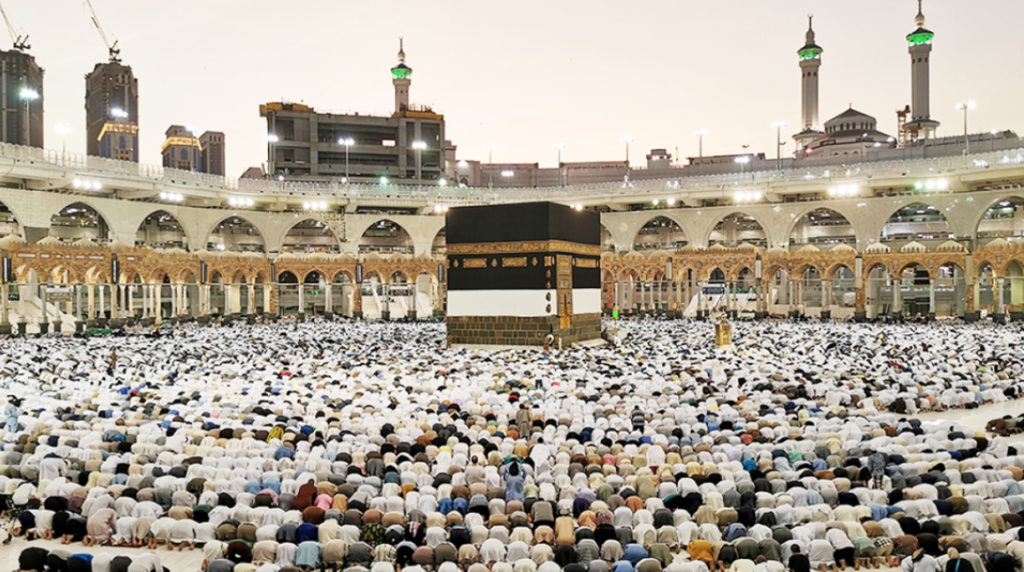Desk Report:
Saudi Arabia’s normalization of relations with Israel will not move forward unless a Palestinian state is established, Saudi Arabia’s top diplomat has said. Saudi Foreign Minister Faisal bin Farhan Al-Saud has made it clear that normalization of relations with Israel is not possible until Palestine is established as a sovereign state.
According to the Lebanese media outlet Al-Mayadeen, he told reporters at the UN General Assembly session in New York on Thursday, “No process of normalizing relations between Saudi Arabia and Israel can proceed unless a Palestinian state is established.” He made it clear that Riyadh will not back down from the Palestine issue for diplomatic gain.
While speaking at the UN, Faisal bin Farhan also mentioned Israel’s plan to annex the occupied West Bank. He said, “I believe that the US president understands very well how serious the risks and dangers of annexing the West Bank are.” This indicates that Washington will not be able to avoid the risk of violent eviction with such a move.
Earlier this year, Saudi Arabia said that recognition and normalization of relations are conditional on the establishment of a Palestinian state. Riyadh has made it clear that any normalization talks are not possible as Israel’s attacks on Gaza continue.
In a speech to the United Nations, the Saudi foreign minister said that a Palestinian state can be established soon, which will be sustainable and compatible with Israel. He claimed that Palestine is ready to resolve the main problems with Israel on a practical basis.
His comments came at a time when the campaign for a two-state solution is gaining momentum again. This solution has long been seen as a strategy to hide Israel’s occupation policy. In the meantime, Riyadh, working with France and European partners, has rallied about 100 countries in favor of a roadmap.
The plan calls for an end to the massacre in Gaza and the release of Israeli prisoners. However, it also requires Hamas to disarm, which many see as tantamount to taking away the Palestinians’ weapons of resistance. This risks leaving Israel’s repressive structure intact.
On the other hand, Israel’s hard-right government continues its policy of expansion. Finance Minister Bezalel Smitrich recently said that he is drawing up a map to annex large parts of the West Bank. Only a handful of Palestinian cities will remain outside of this. At the same time, plans are underway to revive the long-stalled E-1 settlement project. This will create concerns about separating East Jerusalem from the West Bank and destroying the geographical continuity of the formation of a Palestinian state.
Saudi officials have warned that these steps will not only end the two-state solution, but will also increase instability in the entire region. For Washington, recognizing Israeli occupation would be a departure from past policy. It would question the US’s credibility in upholding international law, undermine trust in the Arab world, and undermine regional diplomatic goals.
Arab countries, including Saudi Arabia, have said that any normalization deal without justice for the Palestinians would be seen as a betrayal. It could also undermine other US-brokered agreements and ignite new conflicts.
The recent attacks on Qatar have also eroded trust in the US. Israel targeted Hamas negotiators during US-brokered ceasefire talks. This made it clear that Washington is unable or unwilling to control its ally. The incident has sent a message to Arab countries that partnership with America is no longer a guarantee of regional security. As a result, deep doubts have been raised about the US’s credibility and intentions.




